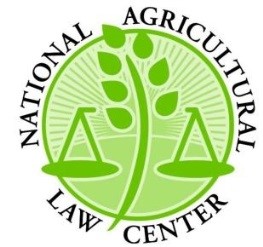Written by: Amie Alexander, JD/MPS Candidate, William H. Bowen School of Law
Several Arkansas farms filed a class action suit against biotechnology companies Monsanto, BASF, and DuPont on July 19, 2017 in the Eastern District of Missouri. Plaintiffs operate soybean farms across Eastern Arkansas. Specifically, plaintiffs allege the following: (1) violation of the Lanham Act (See 15 U.S.C. § 1125(a)(1)(B)); (2) creating a public nuisance “by causing widespread damage due to over-the-top spraying of dicamba on Xtend products;” (3) Trespass to Chattels; (4) negligence; (5) various strict products liability claims; (6) violations of Section 2 of the Sherman Act; (7) violation of the Arkansas Deceptive Trade Practices Act; and (8) civil conspiracy. The full filing is available here.
Background of Suit
Two of Monsanto’s genetically engineered (GE) seeds, Roundup Ready 2 Extend soybeans and Bollgard II XtendFlex cotton seeds, were allowed to be sold after inspection by the Animal and Plant Health Inspection Service. However, the seed sales began before the Environmental Protection Agency (EPA) approved the corresponding herbicide for the seeds, XtendiMax, for release. Xtend products are designed to be utilized in conjunction with dicamba herbicides produced by the defendants – XtendiMax herbicide (Monsanto), Engenia (BASF), and FeXapan (DuPont). BASF markets dicamba products through a subsidiary. Both BASF and DuPont and collaborate with Monsanto in research, development, and marketing of herbicides – including dicamba weed control products. Via a license from Monsanto, DuPont also sells a brand of Xtend soybeans.
Xtend products are genetically modified to be resistant to the herbicide dicamba, which allows these seeds to be sprayed after planting and result in almost weed-less fields. Dicamba was not used often before 2015 because of its reputation among farmers that is prone to drift to surrounding properties. The herbicide is toxic to all broadleaf plants that are not genetically engineered to withstand it. According to the suit, before November 2016, it was illegal to use dicamba on Xtend products due to the risk of drift.
Although Monsanto publically warned farmers not to use dicamba on Xtend products and to wait for the new dicamba formulas, desperate farmers sprayed dicamba on Xtend cotton in Arkansas in 2015. Plaintiffs allege that Monsanto seed representatives encouraged farmers to illegally spray their fields with dicamba. A larger release of Xtend seeds in the 2016 planting season saw more damage caused by off-label use of dicamba – approval from EPA for the corresponding herbicide did not come until after harvest of this crop.
Plaintiffs allege that in obtaining this approval, Monsanto withheld information from EPA, including misleading volatility testing and the its refusal of allowing independent third parties to test formulations. Monsanto released its Xtend seeds and XtendiMax dicamba formulations together in 2017, while BASF and DuPont released new dicamba formulations as well to be used over-the-top of the soybeans. DuPont also released its own version of Xtend seeds through a license from Monsanto. After this release, farmers reported damage even when the herbicides were used as instructed.
Plaintiffs bring suit on behalf of themselves and classes which consist of “all persons and entities, either in Plaintiffs’ respective states or, collectively, in the Nationwide Class” who suffered damaged crops due to dicamba drift sprayed on Xtend products. Farmers who only purchased and planted Xtend crops are excluded from this class. Additionally, a state class in Arkansas which suffered damage to crops in 2015-2017 due to over-the-top application of dicamba on Xtend crops was established.
Plaintiffs’ Claims for Relief
First, plaintiffs claim the defendants’ actions were in violation of the Lanham Act (See 15 U.S.C. § 1125(a)). This provision establishes civil liability for misleading representations of goods, services, or commercial activities used in commerce. Plaintiffs allege Monsanto misleadingly represented that dicamba for over-the-top use on Xtend products would be immediately approved by EPA before and during the 2016 planting season. Next, plaintiffs allege that defendants created a public nuisance by causing the widespread crop damage due to unauthorized spraying of dicamba. Plaintiffs also allege that defendants are liable for Trespass to Chattels for their role in the drift of dicamba into neighboring fields. Additionally, plaintiffs claim defendants are negligent in breaching its duty to farmers and the marketplace and are responsible for the resulting damage to crops which they could have foreseen.
Plaintiffs also bring suit on various products liability claims, including strict liability, strict liability of an ultra-hazardous or abnormally dangerous activity, and failure to warn. Plaintiffs allege various violations of Section 2 of the Sherman Act, including illegal maintenance and attempted maintenance of monopoly in the soybean market and cotton market, and violation of the Arkansas Deceptive Trade Practices Act. Finally, plaintiffs allege defendants are liable for Civil Conspiracy in order to expand the sales of the Xtend crop system.
Plaintiffs seek defendants to be injoined from further marketing and distribution of Xtend products, affirmative steps to remediate damage caused by dicamba damage, and relief based on the claims stated above. You can read the full filing here.
